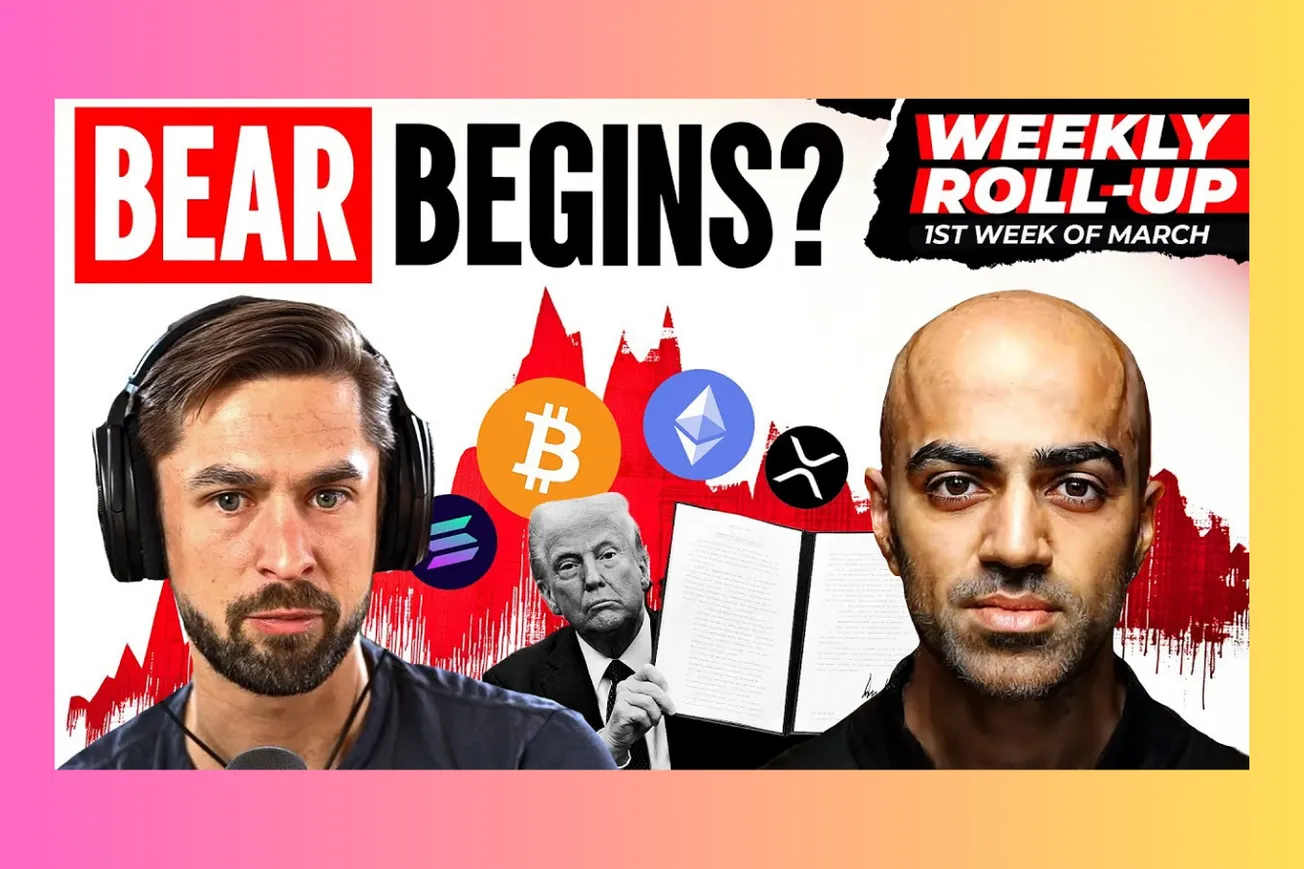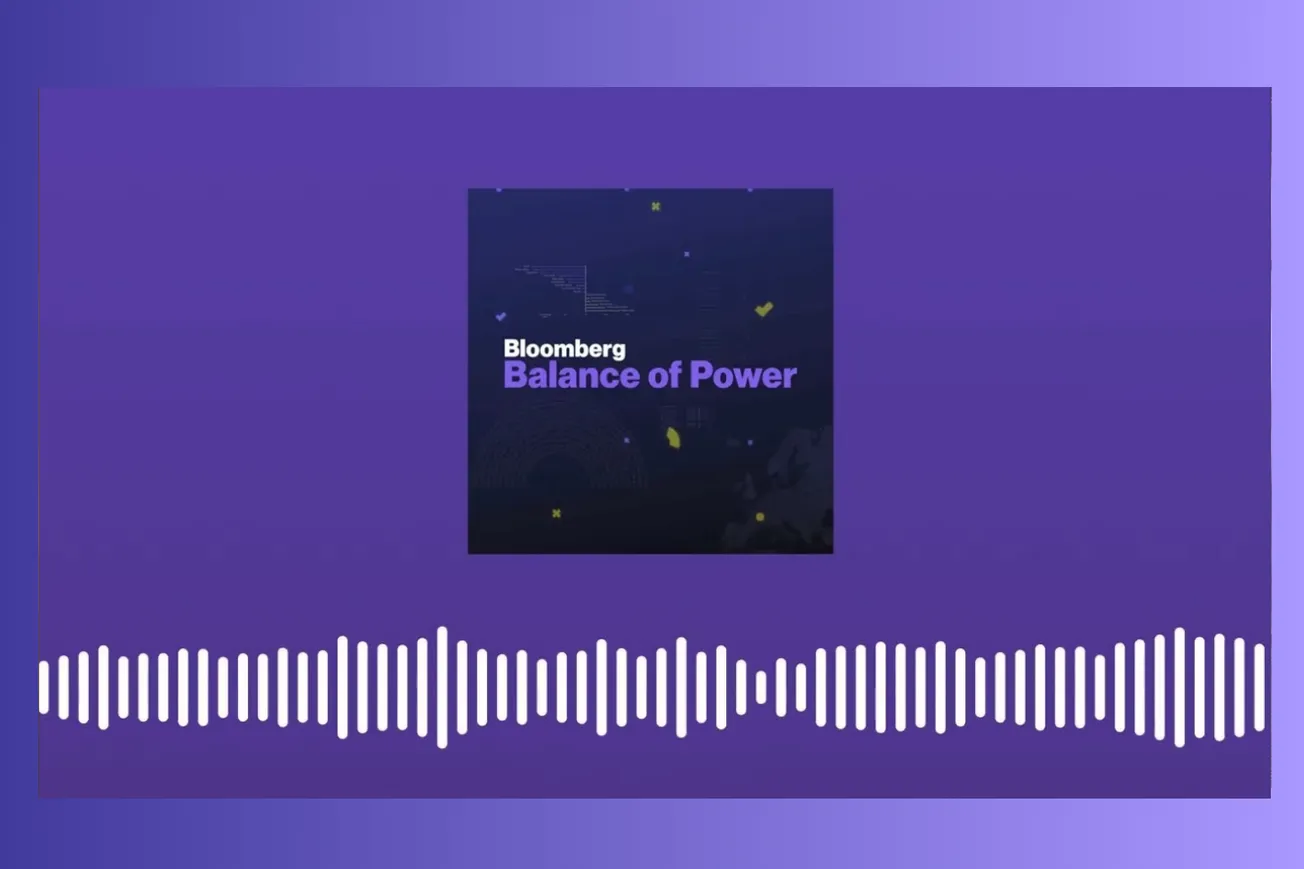Table of Contents
Cryptocurrency markets experienced extreme volatility following Trump's unexpected crypto strategic reserve announcement, only to reverse course as investors realized the practical limitations of implementing such policies without Congressional approval.
Key Takeaways
- Trump's crypto strategic reserve announcement triggered $300 billion in market cap gains before swift reversals
- Congressional approval required for purchasing non-Bitcoin assets makes broader reserve implementation unlikely
- Trade war tensions and tariff policies created additional macro headwinds for crypto markets
- Sam Bankman-Fried prison interview reveals stark contrast between crypto's evolution and personal consequences
- Ethereum Foundation leadership changes signal potential strategic pivot amid competitive pressures
- AI advancement acceleration promises to fundamentally reshape crypto industry development and user experience
- Industry lobbying efforts intensify as crypto companies seek strategic reserve inclusion for asset prices
Timeline Overview
- Early Discussion — Sam Bankman-Fried prison interview analysis and market context setting
- Mid-Discussion — Trump's crypto strategic reserve announcement and immediate market reactions
- Policy Analysis — Congressional requirements and practical implementation challenges discussed
- Macro Context — Trade wars, tariffs, and broader economic policy impacts examined
- Industry Changes — Ethereum Foundation leadership transitions and scaling priorities
- Future Outlook — AI developments and long-term crypto industry transformation predictions
The Sam Bankman-Fried Reality Check
The crypto industry received a sobering reminder of consequences through Tucker Carlson's prison interview with Sam Bankman-Fried, offering contrasting perspectives on justice and human impact. The 42-minute interview revealed a figure fundamentally changed by two years of incarceration, trading in a prison economy based on muffins rather than billions in cryptocurrency.
- Bankman-Fried's reflection on missing crypto's renaissance and AI boom while imprisoned demonstrates how rapidly the industry has evolved since FTX's collapse
- His involvement in Anthropic's seed round, initially criticized as irresponsible spending, proved to be "the best investment he made out of the FTX estate"
- The interview highlighted the stark personal cost of financial crimes, with Bankman-Fried facing potential release between ages 47-57 depending on appeals
- Prison isolation from technological advancement creates unique psychological burden as "the world's moving on like so much stuff is happening"
- Discussion of his 25-year sentence sparked debate about proportionality for non-violent financial crimes in a rapidly changing world
- The interview served as industry backdrop, occurring just as crypto entered renewed optimism under the new Trump administration
The contrast between Bankman-Fried's current circumstances and crypto's current bull market underscores how individual consequences persist while markets move forward. Industry observers noted varying reactions to the interview, with some viewing him as a cold algorithm adapting to circumstances, while others saw genuine human impact from prolonged incarceration.
Trump's Strategic Reserve Announcement and Market Chaos
Trump's March 2nd Truth Social announcement of a crypto strategic reserve triggered immediate market euphoria before reality-based corrections set in. The initial post referenced XRP, Solana, and Cardano without mentioning Bitcoin, before being amended to include "Bitcoin and ether and other valuable cryptocurrencies."
- Markets initially rallied with Cardano rising 50%, Solana up 20%, Ripple gaining 30%, Ethereum increasing 13%, and Bitcoin climbing 10% within 24 hours
- Nearly $300 billion was added to total Bitcoin market cap in the immediate aftermath of the announcement
- Congressional approval requirements quickly became apparent limitation, as government holds Bitcoin from seizures but lacks other crypto assets
- By Monday, markets had "completely reversed all the gains reverse and worse" as implementation challenges became clear
- Polymarket pricing reflected skepticism with Bitcoin reserve odds at 65% and Solana inclusion at only 31-32%
- Laura Shin reported that "Ripple apparently pitched Solana to be a part of the national reserve in order to make the inclusion of Ripple seem more legitimate"
- The announcement fundamentally changed industry dynamics as companies realized lobbying for reserve inclusion became "probably the most high leverage thing you can do for the price of your asset"
The episode illustrated Trump's tendency to "front run" his own working groups, announcing decisions before the 90-day presidential working group investigation was complete. This pattern raised questions about policy consistency and implementation feasibility.
The Governance and Control Problem
The strategic reserve proposal exposed fundamental tensions between crypto's decentralized ethos and government involvement, particularly for assets with on-chain governance mechanisms. Experts warned that government ownership could compromise the independence that makes cryptocurrencies valuable.
- Cardano's on-chain governance structure would allow the US government to literally vote on protocol changes if it acquired substantial token holdings
- Even without active governance participation, the threat of government token dumps could effectively control protocol decisions
- Government holdings create implicit veto power over protocol development through market manipulation threats
- Bitcoin emerged as the only asset truly "beyond anybody's control" even with significant government ownership
- The proposal marked departure from crypto's foundational principle where "all that we really ask for as an industry is to be left alone"
- Industry critics noted the irony of an apolitical movement becoming highly politicized through government intervention
- Strategic reserve concept for assets beyond Bitcoin was deemed "obviously nonsensical" with "no strategic reason for the US government to own any of these assets"
The debate highlighted the difference between Bitcoin's digital gold narrative and other cryptocurrencies' utility functions. While Bitcoin reserve arguments focused on strategic financial positioning, broader crypto reserves appeared driven more by political incentives than economic strategy.
Macro Headwinds and Trade War Impact
Trump's tariff policies created significant macro pressures that ultimately overwhelmed crypto-specific news, demonstrating how traditional economic forces continue to influence digital asset markets. The administration's trade war approach with allies generated unexpected market volatility.
- 25% tariffs on imports from Mexico and Canada, plus 10% energy tariffs from Canada, triggered immediate market reactions
- Counter-tariffs emerged with Ontario implementing 25% export taxes and China responding with 20% tariff goods
- Markets interpreted the policies as economically destructive, with observers noting "literally everything that you've been hearing from all the Talking Heads was that oh Trump is posturing"
- The SPY fell 7% over 15 days as traditional markets rejected the trade war escalation
- Scott Bessent's "Main Street versus Wall Street" framing suggested intentional equity market pressure to benefit bond markets
- Trump's approach was characterized as "chaotic checkers" rather than strategic planning, with frequent policy reversals and exceptions
- The administration's willingness to "arm wrestle our allies" was seen as potentially effective but economically costly
These macro forces ultimately erased crypto market gains from the strategic reserve announcement, demonstrating that broader economic policy continues to drive risk asset performance regardless of crypto-specific developments.
Ethereum Foundation Leadership Transition
The Ethereum Foundation underwent significant leadership changes with Maya Gucci transitioning from executive director to president, replaced by co-executive directors Haijer Weiwen and Thomas Sansak from Nethermind. The changes occurred amid broader community concerns about Ethereum's competitive positioning.
- The transition from single leadership to co-executive directors represented organizational restructuring during competitive pressure period
- Community had hoped for Danny Ryan's appointment as executive director, but he instead co-founded Etherealized for institutional outreach
- Thomas Sansak brought technical competence from scaling Nethermind from early-stage project to global company
- The new leadership faces pressure to address Ethereum's scaling challenges amid competition from Solana and other high-performance chains
- Vitalik's aggressive 2025 roadmap called for "Fusaka on the layer one with PeerDAS with a 48/72 blob target limit"
- The proposed scaling represents 2.5 times more aggressive targets than previous estimates for data availability expansion
- Critics argued focus on data availability scaling missed the more pressing need for execution layer improvements
Danny Ryan's move to Etherealized suggested recognition that institutional adoption required dedicated business development efforts outside the Foundation's technical focus.
AI Revolution and Crypto Industry Future
The discussion of AI developments revealed how rapidly advancing artificial intelligence capabilities will fundamentally reshape the crypto industry, from development processes to user experience to market structure. Current AI model competition demonstrated unprecedented rate of technological advancement.
- Alibaba's 32 billion parameter model outperformed DeepSeek's 671 billion parameter model, showing 20x efficiency improvement in just two months
- GPT-4.5 launch was described as "underwhelming" while Grok 3 from xAI "blew previous model out of the water"
- AI model compression through distillation creates "deflationary force on the cost of AI" by enabling smaller, more efficient models
- Reinforcement learning represents paradigm shift from "next token prediction" to reward-based problem solving
- Development costs will "absolutely plummet" as AI agents become capable of building and testing software independently
- Future crypto user experience will be fundamentally transformed when "there's just you have one agent that handles all of this"
- AI agents managing crypto portfolios represents potential elimination of current friction and network effects
- The "proliferation of products of startups of ideas is going to increase 10 100 fold in crypto" due to reduced development costs
The analysis suggested AI's impact on crypto will be far greater than crypto's impact on AI, with artificial intelligence serving as the primary disruptive force reshaping industry dynamics and user behavior patterns.
Common Questions
Q: Can Trump actually create a crypto strategic reserve without Congress?
A: Only for Bitcoin through existing government seizures; other cryptocurrencies require Congressional appropriation for purchases.
Q: Why did crypto markets reverse so quickly after the announcement?
A: Investors realized implementation challenges and Congressional approval requirements, combined with macro headwinds from trade policies.
Q: What makes Bitcoin different from other cryptocurrencies for reserve purposes?
A: Government already holds Bitcoin from criminal seizures and Bitcoin lacks governance mechanisms that could be influenced by large holdings.
Q: How will AI impact the crypto industry long-term?
A: Development costs will plummet, user experience will be transformed through AI agents, and startup creation will accelerate dramatically.
Q: What are the main concerns about government crypto ownership?
A: Potential control over governance mechanisms, market manipulation through threatened dumps, and corruption of decentralized principles.
The crypto strategic reserve debate revealed the tension between short-term price gains and long-term industry integrity. Trump's policy experimentation continues as markets adapt to macro realities while technological advancement accelerates the industry's evolution.





